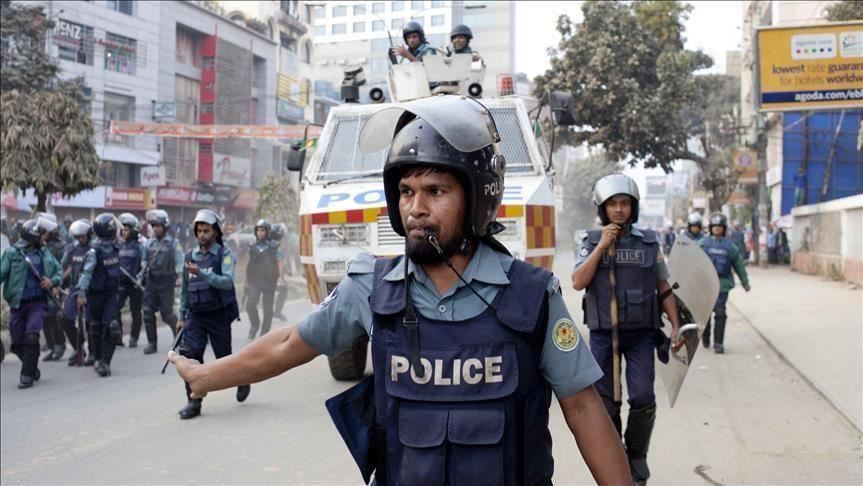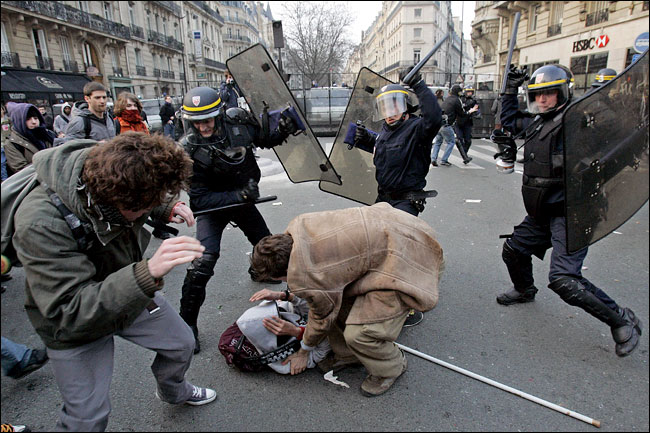
According to local media reports, at least 60 police personnel were infected with COVID-19 and more than 600 were in quarantine in the South Asian nation so far.
In addition, police are disinfecting streets, assisting working people — to ensure social distancing in lockdown — taking people to hospitals for treatment and locating people who. have escaped quarantine, making them extremely vulnerable to the virus as they are not being provided with the necessary safety equipment, according to police officials.
“We are on the front lines to stem the outbreak of the novel coronavirus across the country. But what we’ve received from the government in terms of Personal Protection Equipment (PPE) are nothing but raincoats and ordinary face masks,” said a police sub-inspector from the Metropolitan Police of western Rajshahi district, bordering India.
“In practice, police personnels without coronavirus symptoms have not been provided with any PPE and are purchasing their own safety equipment like face masks and gloves. And those who are assigned to the coronavirus team for emergency service, including transporting patients to hospitals or dead bodies for funerals, have been receiving only a single set of PPE,” he said.
“And worryingly, we have to use those PPEs time and again after washing them while PPEs will no longer be protective after a single use,” he told Anadolu Agency, requesting anonymity as he is not authorized to speak to the media.
He added that the PPEs are also substandard.
According to a report Friday in the local Prothom Alo daily, Bangladesh’s police force has more than 200,000 members, and many of them stay in the police centers in districts where 8 to 12 members are living in a single room, which raising the risk of spreading virus if any of them get infected.
Of the total number of infected police officers, 27 are from the police department in the capital Dhaka, the report added.
“We received some face masks weeks before. Police officers are carrying out their duties with what they have and personally purchase [PPEs] from local markets to ensure their safety,” said another police sub-inspector attached to police headquarters in Dhaka.
“We cannot avoid official calls, even if they don’t have safety gear in line with strict police rules and regulations,” he noted.
Also, it is nearly impossible for the police to practice social distancing while carrying out their duties as people are not yet aware enough to observe the necessary distance and roam local markets and police have been mainly infected with COVID-19 from such situations, the two police officials added.
Masudur Rahman, a deputy commissioner of police, admitted that police in Bangladesh are vulnerable along with health workers and face challenges in ensuring people’s safety and maintaining social distance.
“It’s true that we cannot 100% ensure the safety of our officers. But we are trying our best to assist them in discharging their duties and providing all necessary support (safety equipment) to them during duty hours, added Rahman, who works in the media and public relations division of the Dhaka Metropolitan Police.
“We are in the field to ensure people’s safety with what we have, and we ourselves are collecting those items while many other organizations are donating safety equipment…And we’ve tried to ensure the standard of the safety equipment in line with the World Health Organization.”
There are allegations that the health ministry is not helping police, doctors and others who are combating the coronavirus in the field.
Professor Nasima Sultana, additional director (admin) of the Directorate General of Health Services, said they cannot check “every face mask as there are a number of manufacturers providing PPE and we also receive PPEs as donations.”
However, according to the Institute of Epidemiology Disease Control and Research under the Health Ministry, there are enough PPEs and safety equipment in reserve — totaling 389,832 — and the authorities are regularly providing them to those in the field to ensure their safety.
“Special fabrics are used in manufacturing PPEs and face masks which also come from abroad, and during the worldwide lockdown, the process of importing and manufacturing them also faces disruption. But the health ministry has been working to ensure the safety of our health workers and law enforcement personnels ,” she told Anadolu Agency.
“Police officers are being infected more compared to others as they have to deal with gatherings, so they have to practice social distancing along with other forms of protection, including washing their hands often instead of using gloves,” said Sultana, who is also a health expert.
If health workers and the police remain vulnerable, the entire country will remain vulnerable to the coronavirus as they are the fighters on the frontline against the coronavirus pandemic, the officials agreed.


